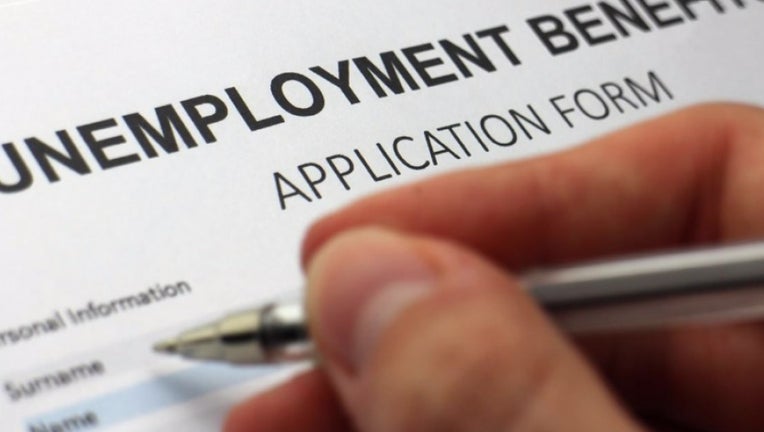Michigan unemployment agency overpaid $3.9 billion in benefits, audit says

A person fills out an unemployment benefits application.
LANSING, Mich. - Just how much money did Michigan's unemployment agency distribute to residents that had applied for aid but shouldn't have received it?
An audit of the Unemployment Insurance Agency reports that approximately $3.9 billion in pandemic-related aid and financial assistance was overpaid to ineligible claimants. The finding follows heavy criticism from the Michigan legislature toward the agency for mishandling the eligibility criteria on the application process for applying for aid.
In June 2021, the UIA sent letters to 648,000 people asking them to recertify their eligibility for Pandemic Unemployment Assistance (PUA), one of several programs designed to help those who did not qualify for regular benefits but needed financial help.
At least 347,000 of those claimants were found to be ineligible.
The audit, which was published Nov. 18, reported the overpayments went to people that received money from the PUA, as well as the Pandemic Unemployment Compensation (PUC) and the Lost Wages Assistance (LWA) programs. The audit determined some overpayments likely still exist for some claimants.
The reason for the overpayments was determined to be the UIA mistakenly adding four pieces of criteria that weren't authorized under the CARES Act, which included the PUA program. Unauthorized criteria included:
- Those seeking part-time employment and were affected by COVID-19
- Those who have insufficient work history to qualify for regular unemployment benefits
- Those who were unemployed or working less due to COVID-19 and were denied benefits on another claim
- Those who had their hours reduced due to COVID-19.
The error prompted criticism from primarily Republicans on the Michigan House Oversight Committee, who accused the agency of mismanagement that led to billions in overpayments.
In the UIA's letter asking claimants to recertify, it was unclear at the time if anyone would have to pay back their benefits. The agency later said people would not need to.
In addition to the overpayments, the audit also found the UIA did not have "effective internal control" when administering the PUA program in accordance with the guidance of the CARES Act and the U.S. Department of Labor.
Both action and inaction by the UIA's leadership led to mismanagement and the creation of invalid PUA criteria, the audit showed. The agency's director at the time made some decisions on his own without discussing and consulting others, internal emails showed.
A PowerPoint created by officials with the UIA and Department of Labor and Economic Opportunity weighed the costs and benefits of paying money out quickly, which included the risk of overpayment.
The UIA acknowledged their confusion led to the overpayments and agreed stronger controls should have been in place during the implementation of the PUA program. However, the agency also said errors were made due to the team working "tirelessly to expeditiously implement the CARES programs that were desperately needed to protect the health, safety and welfare of Michigan citizens."
"UIA had to implement multiple new federal programs based on a hastily drafted law that allowed claimants to self-attest to their own eligibility, content with historic levels of claims filed, and defend against new highly sophisticated criminal efforts to commit fraud - all while transitioning its entire workforce to remote work."

